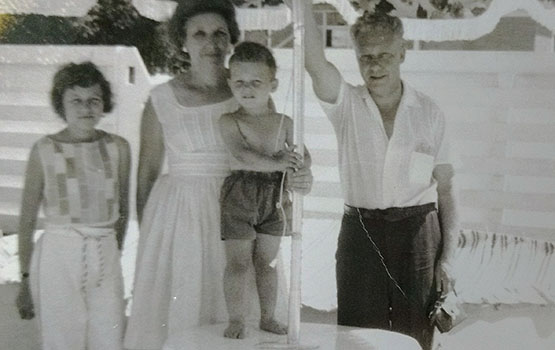I discovered the challenges and rewards of travel at a tender age. One summer when I was 11 years old, travelling by car across North America with my parents and another family, I was accidentally separated from my parents. The other family, who were old friends of my parents, had a daughter close to my age, and I was put in their car for a day to get to know her. But that evening the two families failed to find each other at the designated meeting spot.
Strange as it now seems, we had no mobile phones or email addresses to get hold of each other. We all carried on, not terribly worried, and simply assumed my parents would be waiting at the next agreed stop. But we kept missing each other, until the two families’ itineraries diverged.
Despite this, there was no question of giving up our respective trips and returning home. The family I was with just continued with their holiday, and I went along with them. With one thing and another, I wasn’t reunited with my parents for almost an entire month, clear on the other side of the continent in Calgary, Canada.
During that month, we drove south to New Mexico, had a breathtaking stop at the Grand Canyon, and then headed northwest to British Colombia. I don’t recall being scared, but I was certainly glad to see my parents—and even my little brother—after four weeks.
With hindsight, I realise that unexpected road trip, with people who were basically strangers to me, was a formative experience. It taught me new ways to look at life and made me more resilient: good lessons for the future. It also instilled a lasting love of travel and meeting new people.
So why share this story now? Because I have just passed a proverbial crossroads. After ten years as Head of Marketing at Cambridge Enterprise, I’ve stepped down and taken on a new role: Head of International Relations and Outreach Programmes. Part of a university’s remit is to share best practice and certainly in the case of technology transfer and commericalisation there is a great deal of interest from around the world on how to create more impact from research.
In 1999, Professor Tim Minshall and I co-wrote a bid to create the Cambridge Entrepreneurship Centre in order to establish a solid, institutional foundation for enterprise activities at the University of Cambridge. In preparation, Tim and I did some international fact finding, visiting MIT and Stanford University. We chatted, listened and observed the universities’ technology transfer programmes.
When we got back to Cambridge and started to draft the bid, we agreed that we would not try to replicate the American processes here. We knew that cultural context was critical. Certain ideas and approaches would work in Cambridge, and others wouldn’t. We laid out the appropriate ones, and the bid was funded by the UK Government through the Science Enterprise Challenge, which established 12 university enterprise centres.
Every year Cambridge Enterprise welcomes a large number of overseas visitors from foreign governments, universities and research institutions. Our International Outreach Programme has grown steadily with tailored programmes, ranging from one day to several years, that provide training and advice.
Last year we launched our Research Commercialisation Open Programme for individuals who want to learn more about best practices for commercialising university research. Our goal is to have attendees take the appropriate aspects of Cambridge Enterprise’s approach and adapt them for their own working environments.
I look forward to continuing to develop our international relations and outreach programmes. As I travel the world I still take with me the one item I bought on that first sojourn without my parents: a little change purse from the Grand Canyon. The only time I asked my parents’ friends for money was to buy the purse. Taking it along reminds me just how much you can learn, with little resource, when you travel and meet new people.











